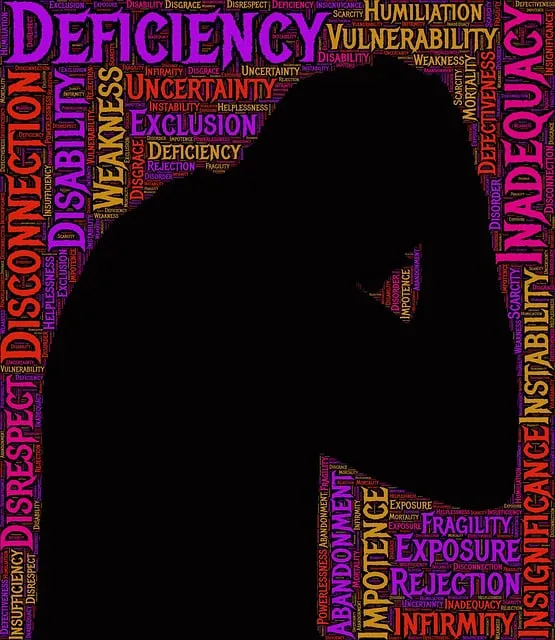In today's fast-paced world, mental wellness is a crucial aspect of overall health, leading to increased demand for accessible self-assessment tools. Organizations like Kaiser, known for its comprehensive healthcare services in Arvada, have recognized this need. Self-assessment tools help individuals evaluate their psychological state and identify potential areas of concern, particularly useful for trauma support and mental wellness coaching. Kaiser in Arvada offers diverse mental health services, including cultural sensitivity, holistic approaches like coaching programs, and self-care routine development, emphasizing proactive mental wellness management. Effective mental wellness self-assessment tools provide insights through comprehensive questionnaires, incorporating emotional intelligence metrics for deeper understanding. Development requires a blend of evidence-based methodologies and recent research, with cultural sensitivity crucial for tailoring assessments to diverse populations.
Mental wellness self-assessment tools play a crucial role in individual awareness and seeking support. With growing recognition of mental health’s significance, these tools are becoming essential resources. This article explores the development of effective mental wellness self-assessment tools, focusing on Kaiser’s role in providing mental health services in Arvada. We’ll dissect key components, development strategies, and implementation techniques to ensure accurate and reliable assessments, ultimately enhancing access to care. Learn how organizations like Kaiser contribute to better mental health outcomes in communities like Arvada.
- Understanding the Need for Mental Wellness Self-Assessment Tools
- Exploring Kaiser's Role in Mental Health Services in Arvada
- Key Components of Effective Mental Wellness Self-Assessment Tools
- Development and Implementation Strategies for Reliable Assessment Tools
Understanding the Need for Mental Wellness Self-Assessment Tools

In today’s fast-paced world, mental wellness is a critical aspect of overall health, and the need for accessible self-assessment tools has never been more evident. Organizations like Kaiser, known for providing comprehensive healthcare services, including Mental Health Services in Arvada, recognize this growing demand. Self-assessment tools play a pivotal role in empowering individuals to take charge of their mental well-being by offering an initial evaluation of their psychological state and potential areas of concern.
These tools are especially valuable for those seeking Trauma Support Services or exploring Mental Wellness Coaching Programs Development. By facilitating self-reflection and awareness, they can guide people towards appropriate emotional healing processes and interventions. The development of such assessment tools is a significant step forward in promoting mental health literacy and ensuring individuals receive the necessary support, whether through professional services or personal growth initiatives.
Exploring Kaiser's Role in Mental Health Services in Arvada

In Arvada, Kaiser has established itself as a key provider of mental health services. Their comprehensive offerings cater to diverse populations, demonstrating their commitment to community well-being. Beyond traditional therapy, Kaiser incorporates innovative practices like Cultural Sensitivity in Mental Healthcare Practice to ensure inclusive care that respects and understands the unique backgrounds and needs of its patrons. This approach aligns with the growing recognition of cultural competence as an essential aspect of effective mental healthcare.
The organization’s focus on holistic wellness extends into the development of Mental Wellness Coaching Programs, empowering individuals to take proactive steps toward better mental health. Additionally, they promote Self-Care Routine Development, equipping clients with tools and strategies for maintaining resilience and overall psychological well-being. Such initiatives reflect Kaiser’s multifaceted role in advocating for and enhancing the mental wellness of Arvada residents.
Key Components of Effective Mental Wellness Self-Assessment Tools

Mental wellness self-assessment tools play a pivotal role in promoting individual awareness and fostering proactive mental health management. When designed effectively, these tools can provide valuable insights into one’s emotional well-being, stress levels, and potential areas of concern. Key components that contribute to their success include comprehensive questionnaires covering various aspects of mental health, such as anxiety, depression, stress management, and coping mechanisms. These assessments should be user-friendly, ensuring individuals from diverse backgrounds can easily navigate them.
Additionally, incorporating elements like Emotional Intelligence (EI) metrics can enhance these tools’ capabilities. By evaluating EI skills, including self-awareness, empathy, and emotional regulation, users gain deeper self-understandings. This is particularly relevant in healthcare settings, where burnout prevention strategies for providers are essential. Tools that consider community outreach program implementations can further widen their reach, making mental wellness assessments accessible to a broader spectrum, including those offered by Kaiser in Arvada, catering to diverse populations’ unique needs.
Development and Implementation Strategies for Reliable Assessment Tools

The development of reliable mental wellness self-assessment tools is a multifaceted process that requires careful consideration. It involves integrating evidence-based methodologies with the latest research in mental health assessment to ensure accuracy and validity. One key strategy is to leverage existing resources, such as those offered by organizations like Kaiser, which provides comprehensive mental health services in Arvada and beyond. By studying their assessments and adapting best practices, developers can create tools that align with established standards of care.
Cultural sensitivity in mental healthcare practice plays a significant role in tool development. Incorporating strategies for empathy building, as promoted by various professional guidelines, helps tailor assessments to diverse populations. This is crucial for stress management, ensuring that the tools are inclusive and effective across different cultural backgrounds. Through iterative testing and refinement, these assessment tools can become valuable resources for mental health professionals, fostering more personalized and compassionate care.
Mental wellness self-assessment tools play a pivotal role in individual awareness and seeking appropriate support. As organizations like Kaiser facilitate mental health services in Arvada, it’s imperative to develop and implement reliable assessment tools that cater to diverse needs. By focusing on key components such as accessibility, validity, and reliability, we can empower individuals to take charge of their mental wellness. Effective strategies for development and implementation ensure these tools become valuable resources within the community, fostering better mental health outcomes.






